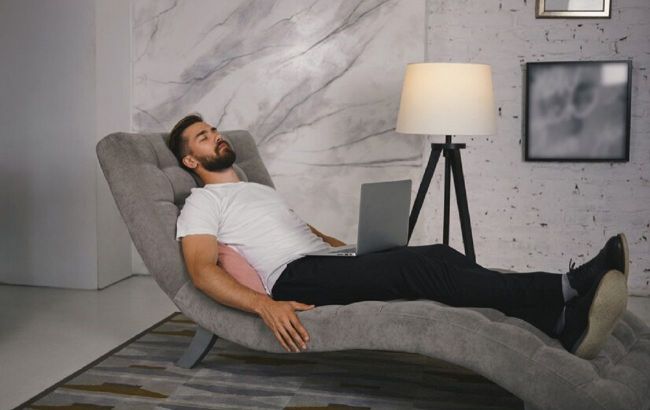Sleep like genius. 7 sleep lessons from great people that will surprise you
 Sleeping habits of famous people (photo: Freepik)
Sleeping habits of famous people (photo: Freepik)
Sleep is a key element of productivity, but famous people have had very different approaches to it. Some slept for only a few hours, using more time to work, while others paid special attention to sleep.
Leonardo da Vinci
The great artist and inventor Leonardo da Vinci followed an unusual sleep schedule - the Uberman polyphasic method. He slept only 20-30 minutes every four hours, which totaled about two hours a day.
This regimen allowed him to work without long breaks and remain productive. Although modern scientists doubt the effectiveness of this lifestyle, Leonardo claimed that he felt good.
Napoleon
The French Emperor Napoleon Bonaparte had a very flexible sleep schedule. In peacetime, he slept for about 6-7 hours, but during military campaigns, his rest was reduced to 3-4 hours a day.
He often fell asleep for a few minutes between battles to maintain his strength. His saying, "Only fools can sleep," reflects his attitude toward rest as a luxury he could not afford.
Thomas Edison
The famous inventor Thomas Edison considered sleep a waste of time and tried to reduce it to 4-5 hours a day. He often slept in short bursts during the day to maintain his energy.
Edison actively mocked those who slept long hours, believing that they were wasting their lives. However, modern research suggests that lack of sleep may have affected his health in later years.
Salvador Dali
Spanish surrealist artist Salvador Dali practiced an unusual way of relaxing. He fell asleep holding a spoon over a metal plate.
When he fell into a deep sleep, his muscles would relax, and the spoon would fall and make a loud sound that would wake him up. In this way, Dalí caught short moments of half-sleep, which, in his opinion, helped him find inspiration..jpeg)
Salvador Dalí's painting "Sleep" (image: Wikipedia)
Winston Churchill
British Prime Minister Winston Churchill had an unusual schedule that combined long hours of work and a mandatory daytime nap. He would fall asleep around 3:00 am, wake up at 8:00 am, and then sleep for another 1-2 hours in the afternoon.
This rhythm allowed him to work longer and maintain clarity of thought. Churchill believed that a daytime nap doubled his productivity and allowed him to think strategically.
Albert Einstein
Physicist Albert Einstein differed from many other geniuses in his love of sleep. He slept at least 10 hours a day, believing that long sleep promotes mental clarity and creative thinking.
In addition, Einstein often took short breaks during the day to recuperate. His approach to sleep is supported by modern research that proves the benefits of prolonged rest for the brain.
Nikola Tesla
The Serbian-American inventor Nikola Tesla slept extremely little - only 2-3 hours a day. He could work for 20 hours without a break, immersed in his experiments. Some contemporaries claimed that lack of sleep affected his mental state in adulthood.
Sources: Business Insider, WebMD, Sleep Foundation.
This material is for informational purposes only and should not be used for medical diagnosis or self-treatment. Our goal is to provide readers with accurate information about symptoms, causes, and methods of detecting diseases. RBС-Ukraine is not responsible for any diagnoses that readers may make based on materials from the resource. We do not recommend self-treatment and advise consulting a doctor in case of any health concerns.

